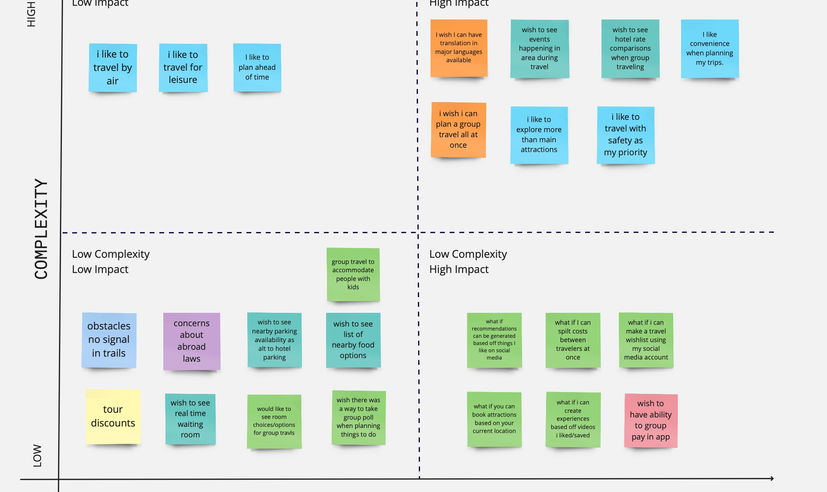

traviator

MY ROLE & RESPONSIBILITIES
UX/UI Designer
TOOLS
Figma
Miro
InVision
Adobe Illustrator
TIMELINE
3 weeks
PLATFORMS
Mobile
GOAL
To create an app that will allow the user to search for hidden gems, things to do, and places to eat while traveling.
Designer
Pa Chang Her
Collaborators
Krishana Parikh (User Research/Analysis)


Problem + Solution


What is Traviator?
How did I approach it?
Traviator is an app that creates unforgettable memories and experiences as the user travels and explores diverse locations around the world. Discovering hidden gems, capturing the essence of each destination, and sharing their adventures with friends and family.
With users unable to see all attractions/events nearby in real time, being able to select travel types and review safety accommodations, I created an app that will offer thousands of amazing tours, activities, attractions and travel experiences around the globe. Users will be able to search and book things to do—anytime, anywhere.

User Research

We began by conducting 7 interviews in order to discover what steps people take to plan for a trip. We discovered that there was a high priority on new experiences, safety, and traveling during the summer.
We surveyed 18 participants, ages 20-40, who on average travel frequently per year. Results from the survey showed that people prefer group travel, find themselves booking attractions, and is kept aware of current health protocols.






Define + Ideate

After conducting an empathy map based on user interviews, the team identified a key user persona: Angi, an elementary math teacher who frequently travels during the summer. With limited travel time and a focus on leisure, Angi needs a streamlined way to discover destination attractions and plan an efficient itinerary.
Traviator was designed to enhance attraction and tour booking for travelers, addressing the gap in existing apps that fail to provide enough options, deals, and hidden gems. The challenge is to improve Traviator to help users maximize their vacation time, enhance booking experiences, and encourage return visits.
Through ideation, key user preferences emerged, including a desire for unique experiences, early planning, and discovering hidden gems. Users also expressed a need for easier group trip planning, more convenient itinerary creation, and the ability to find locations based on images.
Potential solutions include enabling cost-splitting among travelers, integrating social media for booking, and offering real-time activity booking based on a traveler’s current location.

Prototyping







User testing was an iterative process that was carried out at each project milestone to help narrow and simplify the tasks for the user. Prototypes were iterated and retested after gathering feedback from our guerilla user testings.
We wanted to design a easy-to-follow user interface for the app when users are searching for an activity or a place to grab a bite.

Usability Testing

I conducted a few guerrilla usability testings on the app.
This resulted with the user testings being a bit tricky because the user was clicking on everything thinking everything was functional (even with the reminder that not everything is functional and that the steps given were meant to be able to go from one page to the next).
Also making note for future to make sure the users have your full undivided attention to get the best user testing results.

Takeaways

-
Function to create your own profile,
-
Making use of the chat button
-
Offer split payment/installment payment options
-
Offering a full FAQ/Help page.
-
Incorporating a calendar with dates and times/time slots for activities
-
Integration with a waitlist app (Open Table, Waitlist, Yelp) if a restaurant has reservations



